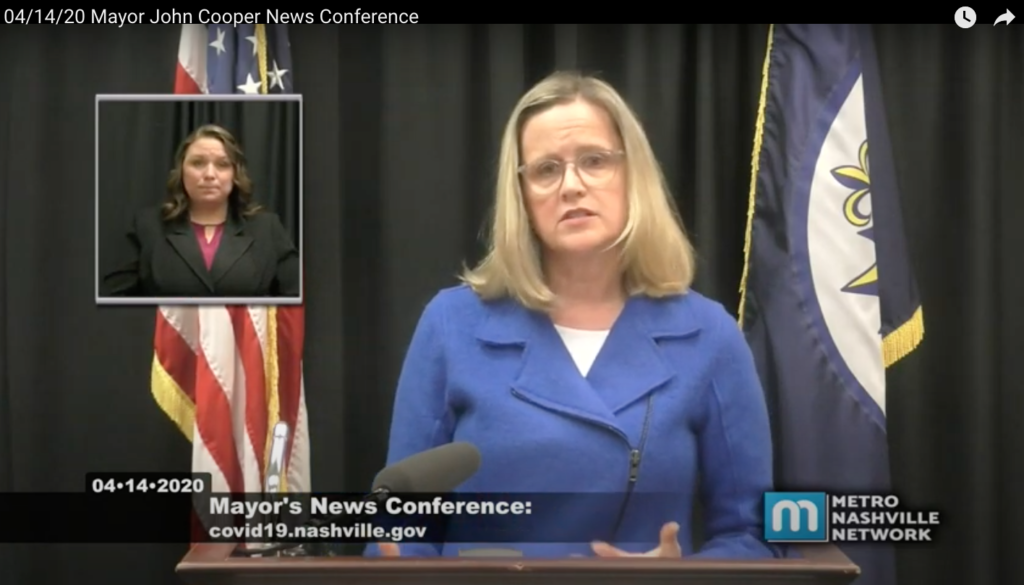
While medical professionals have shifted their focus almost exclusively to the coronavirus in recent weeks, Metro leaders are also concerned about health crises that have received less attention during the pandemic: mental health and abuse.
At a press briefing this morning, Nashville Mayor John Cooper told residents they “do not have to face a mental health challenge alone.”
A recent McKinsey survey found that 63% of respondents reported feeling anxious or depressed in the past week and 80% had experienced some level of distress related to COVID-19. And multiple crisis hotlines say they’ve noticed an uptick in calls during the pandemic.
Former U.S. Rep. Patrick Kennedy, a mental health advocate who has battled his own drug addiction, joined Cooper via video conference. He said every American’s mental health has been impacted by the coronavirus.
“You cannot help but face a mental health crisis when you see your job disappear, when you’re furloughed, when your business shuts down, when you’re separated from friends and family,” Kennedy said. “The question now is: are we going to prepare ourselves in a way that we never prepared ourselves during the COVID crisis? What is the equivalent of personal protective equipment? What’s the equivalent of ventilators?”
Kennedy said Nashvillians, along with anyone else in need of support, can access mental health resources from home on a website he co-founded called Psych Hub. He said the site has also created toolkits for public officials, healthcare systems and families to navigate mental health concerns.
Nashville residents can also get help locally by visiting the mental health resources page on covid19.nashville.gov.
While many are struggling with mental illness and distress during the pandemic, Diane Lance, the director of Nashville’s Family Safety Center, said the impact has also been “particularly acute” for those who have a history of being abused.
“There are so many emotional triggers happening all at once right now. And any one, let alone all of these, can resurrect past traumas and really concerning feelings,” Lance said. “These triggers are hard to avoid, because many are amplified and compounded right now, such as isolation, financial insecurity, unemployment, unmanageable stress, feelings of powerlessness, a lack of certainty and feelings of being trapped.”
Lance said victims of abuse can still get help, even during the COVID-19 outbreak. Those in need can visit the Family Safety Center at 610 Murfreesboro Pike, call the YWCA hotline (800) 334-4628 or text (615) 983-5170 for assistance. All three of the city’s shelters are also still open, with strict COVID-19 precautions in place.
At a press briefing late last month, Sharon Roberson, president and CEO of YWCA Nashville & Middle Tennessee, said calls to its domestic violence hotline increased 55% in the first two weeks of March. Metro Police Chief Steve Anderson said several days later that domestic violence calls to the department had mostly remained stagnant.
But Lance said that’s likely because abuse is one of the most underreported crimes. Still, she said, “there is no need to stay at home with an abuser.” And she urged those who think a loved one may be at risk to stay connected.

